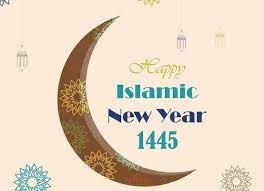A thousand, four hundred and forty-five years ago, history stood as witness to the emigration of seventy men and women from Mecca to Medina. In the morning of 24 September, 622 CE, Prophet Muhammad (upon him be peace and blessing of Allah), accompanied by his bosom friend, confidant and follower, Abu Bakr al-Siddiq, having slipped away under the cover of the night, having taken untrodden paths and having escaped the inhumanity of the aristocratic powers of Makkah (his homeland) eventually arrived the safe and secure earthland of Madinah. This event is usually celebrated all over the Muslim world the same way it was celebrated by the second Caliph in Islamic history, Umar b. Khatab. It was the latter who began to date the undated in Muslim reality; it was Ibn Khattab who first started the usage of the date of emigration of the Muslims from Makkah to Madinat in the affairs of the Islamic state. The successful arrival of the Prophet of Islam from Makkah to Madinah after thirteen years of persecution in the hands of the Makkan unbelievers known as Hijrah has since then been commemorated on a yearly basis by the Muslim world.
In the realm of the spiritual, the Hijrah was all about duty and sacrifice; in the realm of the material and the human, it was an adventure. The first precedes the second both in importance and sequence. The Hijrah was also all about forsaking and repossessing. This is evidenced in the individual and communal realities of those who left what made them humans behind in Makkah in order for them to become greater humans in Madinah. It was a template for the emergence of new figures in history through whose actions the world today now counts the existence of close to two billion Muslims. The Hijrah, while referencing motifs of forsaking and repossessing, amplifies the secret codes for the attainment of excellence in life. It means to be deprived of the world is not the same thing as forsaking the world. Both occurred with reference to the seventy individuals who made that journey during the first Hijrah, the second was relevant to those who willingly left Makkah in order to populate Madinah. The Hijrah as a motif, therefore, essays the world as operating on a scale: it is either you are deprived of the world or you are made to forsake the world. In both instances, the world is meant to be forsaken, not coveted. But the irony lies in the fact that those who forsake the world usually have the world come to them pleading that it be possessed; those who covet the world might or might never gain it; those who excessively covet the world are more likely going to lose it and lose their souls.
Further, the Hijrah had to do with the departure from a space: the departure from Makkah. The Prophet and his companions not only left Makkah in person, but also left Makkah behind. To leave Makkah behind meant leaving the city with its insuperable odour of greed, covetousness, self-conceitedness, oppression of the poor, and sexploitation of women. By leaving Makkah, the Prophet was indirectly calling attention to the existence of the “Makkahs” of today: the “Makkah” in the North and South of Nigeria; the “Makkahs” in Africa and Asia; the “Makkahs” which are awaiting the emigration of humanity to the worship of their Creator.
But the Hijrah of the Prophet from Makkah to Madinah did not and could not even have taken place the way it did without the resolution of matters which directly hinged on the personality of the Other Muhammad. In other words, two types of Muhammad were known to the Makkans before the Hijrah: the Muhammad who claimed to be a Prophet and the Muhammad who was an embodiment of virtues and trustworthiness. The “first” Muhammad was hated for his declaration that there is no god but the Almighty; the ‘second’ Muhammad was loved for being virtuous, kind and a peace-maker; the ‘first’ Muhammad was the one the Makkans believed had to be fought; the ‘second’ was the one in whom the Makkans would entrust their loftiest treasures. But in reality, there could be no separation between Muhammad, the Prophet and Muhammad who was the epitome of highest moral character.
- Strange disease kills 5 in Kaduna community, 10 admitted
- Reps to probe aviation fuel contamination, non-adherence to standards
In other words, contrary to the Makkans’ wish, it was impossible for the Muhammad, son of Abdullah to be a Prophet ab initio if he could not measure up to the minimum standard of probity, honesty, and trustworthiness. You cannot lay any claim to be Muslim if your moral currency is weak; he is not a Muslim who betrays people’s trust.
Thus, on the night of his departure from Makkah, he asked his cousin to help him return the treasures which the Makkans had kept with him while they were relating to him as Muhammad son of Abdullah, not as Muhammad the Prophet of the Almighty. To emigrate for His sake, therefore, meant to be free of all of the obligations that are capable of rendering the Hijrah a nugatory; that in a state of oppression, the religion of Islam demands equity from the oppressed to the oppressor even if the latter does not and would not come to equity with open hands.

